Hemp is the oldest cultivated crop of mankind, and hemp industry is one of the oldest industry dating back to 8000 BC. Hemp Plant has immense potential to serve in the field of food, shelter and clothing. Some of the properties of this plant are listed below.
The building materials today are heavily detrimental to the environment and our health.We at Gohemp believe there is a strong need to rethink the building materials and construction.Consider this: Like a tree grows by utilising the nourishment and resources available in the surrounding environment but simultaneously giving back the fresh oxygen to the environment and and taking care of the mother nature from whom it was born.In its full glory,it provides and takes care of other creatures by providing food and shelter.When it reaches it's end,it slowly decomposes itself and once again become the part of the very nature it was born out of. That is how our architecture should also be.It should come out of the nature and should maintain the harmony with the environment it came out of even after death. At Gohemp,our biggest inspiration are the plants,trees and this beautiful natural environment we live in.
Hempcrete is made from lime and hemp shivs (a waste product from hemp processing) It can be used for walls, floors, and for roof insulation.
Gohemp's vision is to lead the world towards sustainability by harnessing hemp's incredible potential. As a versatile resource for food, shelter, clothing, well-being, and energy, hemp serves as a sustainable foundation. Embracing this renewable resource, we foster connections between agriculture and diverse industries. Our aim is a sustainable world achieved through innovative technology, prioritizing balanced and eco-friendly progress in every aspect.
Our mission revolves around meeting humanity's fundamental needs sustainably, nurturing eco-friendly lifestyles and sustainable built environments through the utilization of hemp. We strive to pioneer sustainable products crafted from renewable materials, presenting cost-effective and health-conscious choices to enhance lives on a global scale.
Gohemp is a women-led startup founded by a team of architect who are passionate about sustainable construction practices. The company is growing and is extending the collaborations with architects, passionate clients, innovative farmers, entrepreneurs etc.
Architect Vastukala Academy, New Delhi
Architect SPA Delhi
Supervisor
Green building and Energy Conservation
Material Scientist
Design Development
Hemp Expert
Hemp is an amazing building material and have the potential to revolutionize the construction industry. Working with this sustainable and longer-lasting plant based construction products is very important to get full understanding of it. We provide you with our expertise with detailing the Hempcrete element of the building and make the most out of this unique material. So, Contact us with your ideas, thoughts, and plans for your next building project. We'd love to collaborate with you and your team to create a worthy project.
Gohemp provides a complete design and build service to our clients. Our expert construction team work alongside our partners, including qualified architects experienced in Hempcrete design, structural engineers, and trusted subcontractors to provide a complete project-managed design and build service.
We provide material for Hempcrete project of any scale in India
We supply binder and hemp shiv for cast-on-site Hempcrete, pre-cast Hempcrete blocks and all other associated materials including lime mortar and Lime plaster and render.
If you want to place an order please write to us from the contact section we will be happy to help you.
Hemp is an excellent sustainable material so we want it to be used as much as possible. At Gohemp it is our mission to educate people how to work with this material. We provide builders with expert knowledge to develop the necessary skills and understanding to use it properly.
If you are interested to attend our Training and workshop session please write to us.
 The Gohemp blocks is a range of organic construction blocks suitable to build all kinds of buildings with a concrete/ meta/timber load bearing structure and a lime based mortar.
The Gohemp blocks is a range of organic construction blocks suitable to build all kinds of buildings with a concrete/ meta/timber load bearing structure and a lime based mortar.
 The Gohemp boards are a range of boards that will be suitable for any use in interiors, temporary construction, furniture etc.
The Gohemp boards are a range of boards that will be suitable for any use in interiors, temporary construction, furniture etc.
 Explore Hands-On Crafting with the GoHemp DIY Hempcrete Kit! This comprehensive kit provides all the essentials for creating hempcrete blocks effortlessly, anywhere you desire. Accompanied by a detailed instruction manual, it's an ideal choice for architecture and engineering students, professionals, artists, eco-conscious individuals, or DIY enthusiasts. Elevate your DIY experience with hemp through this exceptional kit designed for versatile applications.
Explore Hands-On Crafting with the GoHemp DIY Hempcrete Kit! This comprehensive kit provides all the essentials for creating hempcrete blocks effortlessly, anywhere you desire. Accompanied by a detailed instruction manual, it's an ideal choice for architecture and engineering students, professionals, artists, eco-conscious individuals, or DIY enthusiasts. Elevate your DIY experience with hemp through this exceptional kit designed for versatile applications.
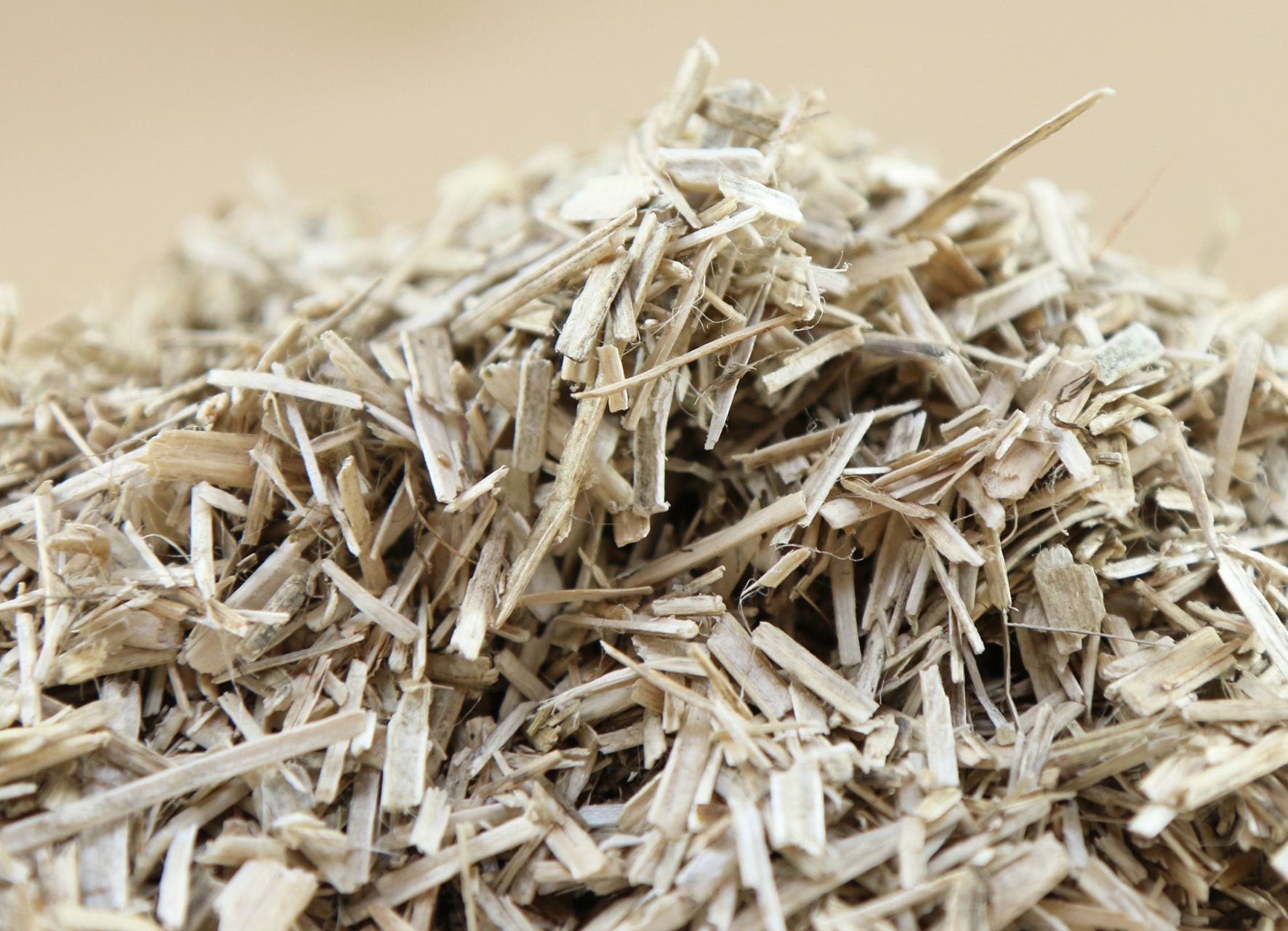 Unlock the Remarkable Potential of GoHemp Hurds/Shives: a Versatile and Sustainable Material. Extracted from the inner core of hemp and related crops, GoHemp hurds/shives boast unparalleled strength, durability, eco-friendliness, and carbon sequestration capabilities. Whether utilized as animal bedding, mulch, composite materials, or in various applications, this adaptable material consistently delivers top-tier performance. Harness the strength of hemp and delve into endless possibilities with GoHemp hurds/shives, your premier choice for sustainable materials.
Unlock the Remarkable Potential of GoHemp Hurds/Shives: a Versatile and Sustainable Material. Extracted from the inner core of hemp and related crops, GoHemp hurds/shives boast unparalleled strength, durability, eco-friendliness, and carbon sequestration capabilities. Whether utilized as animal bedding, mulch, composite materials, or in various applications, this adaptable material consistently delivers top-tier performance. Harness the strength of hemp and delve into endless possibilities with GoHemp hurds/shives, your premier choice for sustainable materials.
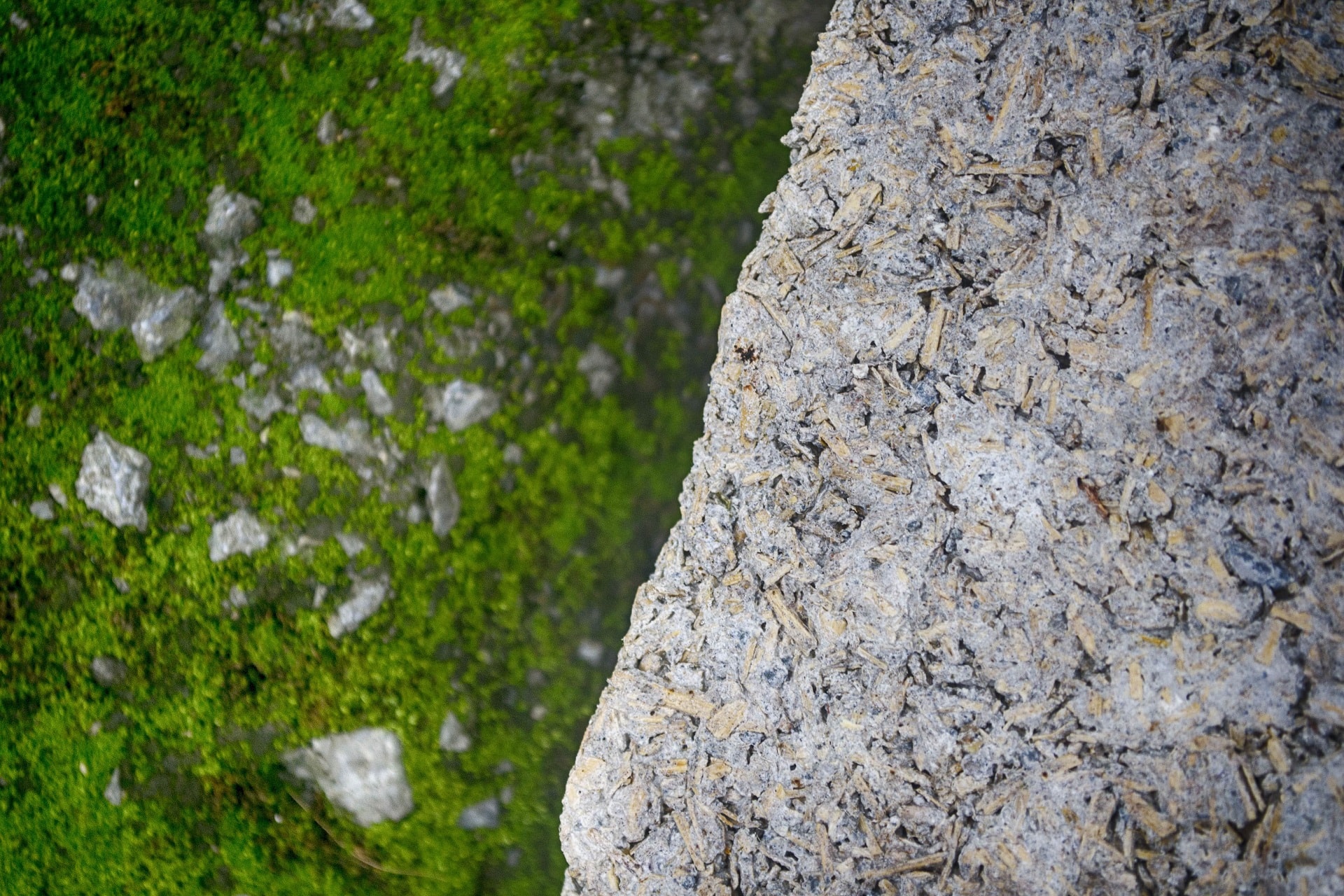 Discover the Ease of Gohemp's Wet Paste Binder, Crafted from Handpicked Indian Limestones for Bio Concretes. Our eco-friendly binder ensures robust adhesion, ideal for long-lasting constructions. Its wet paste formulation streamlines application, saving valuable time and effort. Embrace efficiency and sustainability with Gohemp's Wet Paste Binder, tailored for masonry, plastering, and restoration projects. Opt for this Sustainable Lime Paste Binder for effortless application and enduring strength.
Discover the Ease of Gohemp's Wet Paste Binder, Crafted from Handpicked Indian Limestones for Bio Concretes. Our eco-friendly binder ensures robust adhesion, ideal for long-lasting constructions. Its wet paste formulation streamlines application, saving valuable time and effort. Embrace efficiency and sustainability with Gohemp's Wet Paste Binder, tailored for masonry, plastering, and restoration projects. Opt for this Sustainable Lime Paste Binder for effortless application and enduring strength.
Indulge in Sustainable Comfort and Elevated Indoor Air Quality with GoHemp's Wool Insulation. Crafted from hemp fibers, our wool insulation guarantees exceptional thermal and acoustic performance while embodying eco-friendly living. Embrace energy-efficient spaces, lessen your environmental footprint, and adopt natural, sustainable insulation. Whether you're building anew, renovating your home, or seeking antibacterial bedding for your pet, GoHempWool insulation is the optimal choice to meet your needs.
Your Licensed Supplier of Cannabis Biomass/Bhaang from Uttarakhand's Himalayan Region. We provide top-tier raw materials sourced from premium plants, meticulously processed and packaged under strict hygienic standards. Our commitment extends to supplying legal cannabis biomass exclusively to authorized companies permitted for cannabis storage and use. Trust us for premium-quality, legally compliant cannabis biomass from Uttarakhand.
Indulge in Luxury with Gohemp's Handmade Soap, Enriched with Hemp Oil and a Blend of Himalayan Herbs. Meticulously handcrafted with premium ingredients, our soap rejuvenates and moisturizes your skin, delivering a refreshing experience. Ideal for all skin types, including sensitive skin, it ensures gentle cleansing and deep hydration. Embrace the essence of natural skincare through Gohemp's Handmade Soap, offering a pampering treat for your skin.
Discover the Natural Wonders of GoHemp Seed Oil, Extracted from Naturally Grown Hemp Seeds of the Himalayas. Rich in nutrients, antioxidants, and essential fatty acids, this oil provides comprehensive nourishment from the inside out. Whether it's promoting radiant skin or enhancing overall well-being, GoHemp Seed Oil stands as a sustainable option for rejuvenation. Harness the potent benefits of Hemp Seed Oil and foster a healthier, more vibrant you.
Unveil the Key to Vibrant, Healthy Hair with GoHemp Hair Oil. Abundant in essential fatty acids and enriching nutrients, GoHemp Hair Oil provides deep hydration, reviving your hair for enhanced strength, smoothness, and a radiant shine. Bid farewell to dryness, frizz, and lackluster locks as GoHemp Hair Oil works its transformative magic. Embrace nature's power to unlock the true beauty of your hair.
Unlock the Nutritional Marvels of Himalayan-Organic GoHemp Seeds. Bursting with proteins, fiber, and beneficial fats, these seeds provide versatile and sustainable dietary advantages. Incorporate them into salads, smoothies, or recipes for a wholesome nutritional lift. Embrace the goodness of GoHemp seeds to naturally nourish your body.
Experience Tree-Free Handmade Hemp Paper, Skillfully Crafted into High-Quality Journals for a Durable and Luxuriously Smooth Writing Surface. Preserve your thoughts, ideas, and plans while championing environmental positivity. Opt for the GoHemp journal—a conscious choice for sustainable and impactful writing.
Relish the Therapeutic Aroma of Our Hemp Incense Cones, Elevating Relaxation and Harmony to New Heights. Enliven your senses with the essence of hemp and the natural Himalayan fragrances, curating moments of serene tranquility in your environment.
Introducing Our Hemp Gift Box – a Wholesome Tribute to the Essence of the Himalayas. Carefully curated, this gift box is perfect for personal or corporate occasions. Included:
Pure Himalayan Hemp Seed Oil: Fosters wellness naturally
Luxurious Hemp Soap: Crafted with hemp's goodness
Stylish Hemp Pouch: Eco-friendly and chic for everyday use
Tranquil Hemp Incense Cone: Infused with Himalayan herbs
Premium Handmade Hemp Journal: Bound with artisanal hemp paper
Elegant Hemp Bookmark: Sustainably keeps your place in style. Himalayan Roots:
Crafted from raw Himalayan ingredients, each item mirrors purity and supports sustainability. For Every Event: Versatile for personal milestones or corporate gestures. Sustainability Focus: Eco-conscious materials in line with ethical values. Elevate special moments with our distinctive Hemp Gift Box.
What Is Hemp? Understanding the Differences between Marijuana and Hemp?
Hemp is one of the oldest domesticated crops known to man. It has been used for paper, textiles, and cordage for thousands of years.
Marijuana and hemp both come from the same species of plant, Cannabis sativa L., but from different varieties.
Marijuana is the flowering tops and leaves of psychoactive varieties of Cannabis that are grown for their high THC content.
Marijuana is the psychoactive variety, which grows outwards with more leaves and buds.
Hemp, also referred to as industrial hemp, is the low-THC, oil seed and fiber varieties of Cannabis, which is grown for their seeds, stalk and fiber.
Hemp is used to refer to the non-psychoactive variety, which grows up-to 4 meters tall, and has long massive stalks.
Benefit of Hemp Cultivation?
Hemp is a 100 days crop which can be harvested twice a year. This crop requires less fertilizers, less pesticides and less water. It naturally stops weed growth around, enhances the fertility and prevents soil erosion.
Hemp is an attractive rotation crop for farmers. As it grows, hemp breathes in and locks CO2 in its biomass. It also detoxifies the soil, and is used for phytoremediation. What’s left after harvest breaks down into the soil, providing valuable nutrients. Best part for Himalayan farmers is that monkey and wild boars do not damage this crop.
What Can Hemp Do?
Hemp can be grown as a renewable source for raw materials that can be incorporated into thousands of sustainable products.
Its seeds and flowers are used in health foods, organic body care, and in medicines.
The fibres and stalks are used in hemp clothing, construction materials, paper, biofuel, plastic composites, and more.
What is hempcrete?
Hempcrete is a bio-composite made of the inner woody core of the hemp plant mixed with a lime-based binder.
Benefits of hempcrete ?
Sustainable
Durable
Fire Resistant
Termite Resistant
Humidity Regulator
Heat and sound Insulator
Carbon Sequester
Breathable
Non-toxic
Mold resistant
Is the hempcrete good to health?
Yes, it is good to health for the people who produce it, install it or benefit from it in their homes. The raw materials of which it is composed are natural and the manufacturing process involved are less energy intensive and have less environmental impacts as compared to other conventional materials.
Should I take any protective measures when using hempcrete?
Protective goggles, gloves, and masks should be worn when mixing hempcrete, because hydrated lime is caustic.
Can hempcrete be used as a structural material?
Hempcrete is a non-structural material which is cast around a timber, steel, or concrete frame. Hempcrete provides additional support to the frame.
Can Hempcrete be used for interior and exterior renovation?
Yes, hempcrete can be used for both interior and exterior renovation.
Is hemp cultivation Legal in India?
Yes, It is legal in India and is being done in the state of Uttarakhand. More and more states are working to reap benefits by starting the cultivation in their region as well.
What is the procedure for Hemp Cultivation?
Currently Uttarakhand State (except Terai and Bhabhar regions) provides Licence for Hemp Cultivation, a form for which can be obtained from the excise department's website. For cultivation, the applicant must have access to low THC hemp seeds as per the government's norms. During cultivation the authorities will do timely inspection for testing the THC in the plant growth.
Who will issue License for Hemp cultivation?
District Magistrate of the particular district where the farmland is located, will issue Hemp cultivation License after scrutiny of your application.
What if hemp plantation crop tests over the legal limit of THC?
If hemp crop tests over the legal limit of permissible THC then the crop will be destroyed by the inspecting authority.
Who can inspect the hemp crop?
The crop can be inspected by sub inspector of Aabkaari Vibhaag or Nayab Tehseeldar rank of revenue department.
For more Information Click Link -
http://uttrakhandexcise.org.in/Docs/bhang.pdf
How it will benefit the country?
India being an agrarian economy, will reap all economic benefits of growing hemp. A whole new hemp processing industry is coming which will create new entrepreneurs.
India has the potential to be the global supplier of raw hemp as well as of processed products. The benefit of Indian hemp industry will reach to the remotest parts of country to the farmers, the processors, as well as to industries and the government.

Winner of Asian Hemp Summit in 2020

Winner of BIRAC BIG GRANT 2022

First Indian hemp startup to receive grant from government 2019

Winner of Global Housing Technology Challenge organized by Ministry of Housing and Urban Affairs 2021

Winner of HDFC Parivartan Grant 2023

Selected at IIM Kashipur 2022
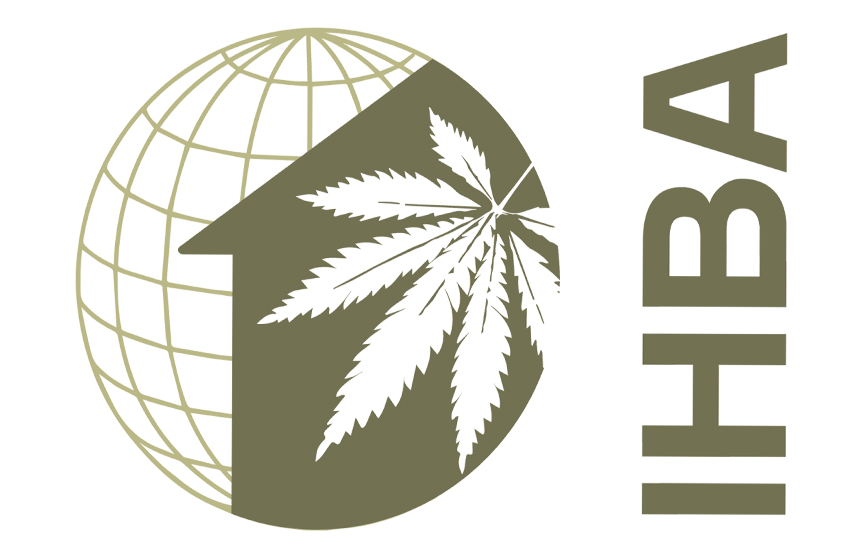
Speaker at International Hemp Building Symposium 2022

Represented India as part of official delegation SLUSH Finland 2023

Represented India as part of official delegation at Bangladesh Startup summit 2023

Finalist at National Startup Awards 2022

Recognised startup Uttarakhand 2022

Incubated at Tides IIT Roorkee 2022
Gohemp is always keen to join hands with people who share the same enthusiasm for ecology. We are continuously growing with various architects, engineers, material scientists, government departments, getting enrolled into the concept of 'creating ecological lifestyles' through hemp and many from diverse backgrounds who keep a similar mind-set.
Phone: +91 9711216977,+91 9899631375
E-mail: gohemp.in@gmail.com
New Delhi: H.No 28, Gali 3, A2 Block, West Sant Nagar, Burari, New Delhi 110084
Uttarakhand: Wet Lab 6, 2nd Floor, Tides Bionest, MAC Building,IIT Roorkee, Uttarakhand 247667
Hemp or industrial hemp is a variety of the Cannabis sativa plant species that is grown specifically for the industrial uses of its derived products. It is one of the fastest growing plants and was one of the first plants to be spun into usable fiber 10,000 years ago. It can be refined and used in the manufacture a variety of commercial items including paper, textiles, clothing, biodegradable plastics, paint, insulation, biofuel, food, and animal feed.
Although cannabis as a drug and industrial hemp both are derived from the species Cannabis sativa and contain the psychoactive component tetrahydrocannabinol (THC), they are distinct strains with unique phytochemical compositions and uses. Hemp has lower concentrations of THC and higher concentrations of cannabidiol (CBD), which decreases or eliminates its psychoactive effects.

Hemp use dates back to the Stone Age, with hemp fibre imprints over 7,000 years old found in pottery shards in China and Taiwan Civilization. Agriculture, and hemp textile industries begin in Europe and Asia
Chinese used the hemp stalks for building materials, clothing, shoes and food and discovered that hemp seed is high in protein, vitamins, and essential amino acids.
Bhang (dried cannabis leaves, seeds and stems) is mentioned in the Hindu sacred text Atharvaveda (Science of Charms) as "Sacred Grass", one of the five sacred plants of India. It is used medicinally and ritually as an offering to lord Shiva
Sushruta Samhita mentions bhaang, as a medicinal plant, and recommends it for treating phlegm and diarrhoea.
Gautama Buddha is said to have survived by eating hempseed.
Specimens of hemp paper were found in the Great Wall of China.
Columbus sailed across the Atlantic with a ship made from 80 tons of hemp sails, caulking and rigging.
Hemp was cultivated in England, becoming the primary source of clothing material. King Henry VIII would fine his constituents for not cultivating hemp.
Portuguese physician Garcia da Orta in Goa, wrote about the uses of cannabis in his 1534 work ‘Colloquies on the Simples and Drugs and Medicinal Matters of India’.
Use of hashish, alcohol, and opium spreads among the population of occupied Constantinople. Hashish becomes a major trade item between Central Asia and South Asia
The India Hemp Drugs Commission Report is issued. 70,000 to 80,000 kg per year of hashish is legally imported into India from Central Asia.
The Indian Hemp Drug Commission concludes that cannabis has some medical uses, no addictive properties and a number of positive emotional and social benefits
Rudolph Diesel created a famous engine in 1896. The engine would run on a variety of fuels, such as vegetable and hemp seed oil. Henry Ford, founder of the Ford Motor Company, realized the potential of biomass fuels with a successful biomass conversion plant which was produced using hemp fuel.
Cannabis is removed from the U.S. Pharmacopoeia and it's medicinal use is no longer recognized in America. The same year the Indian government considers its cultivation in Kashmir to fill void of hashish supply. Hand-rubbed charas from Nepal is popular in India during World War II
Legal hashish consumption continues in India.
The industrial cultivation of hemp was banned under the Controlled Substances Act.
Nepal bans the Cannabis shops and charas (hand-rolled hash) export. Afghan government makes hashish production and sales illegal.
In India, the cultivation of hemp was banned under Narcotic Drugs and Psychotropic Substance Act.
The cultivation of hemp was legalized by the Uttarakhand government in the state.
Gujarat legalized bhang by removing it from the list of "intoxicating drugs" covered by section 23 of the Gujarat Prohibition Act.
Uttarakhand Hemp Association (UHA) was formed.

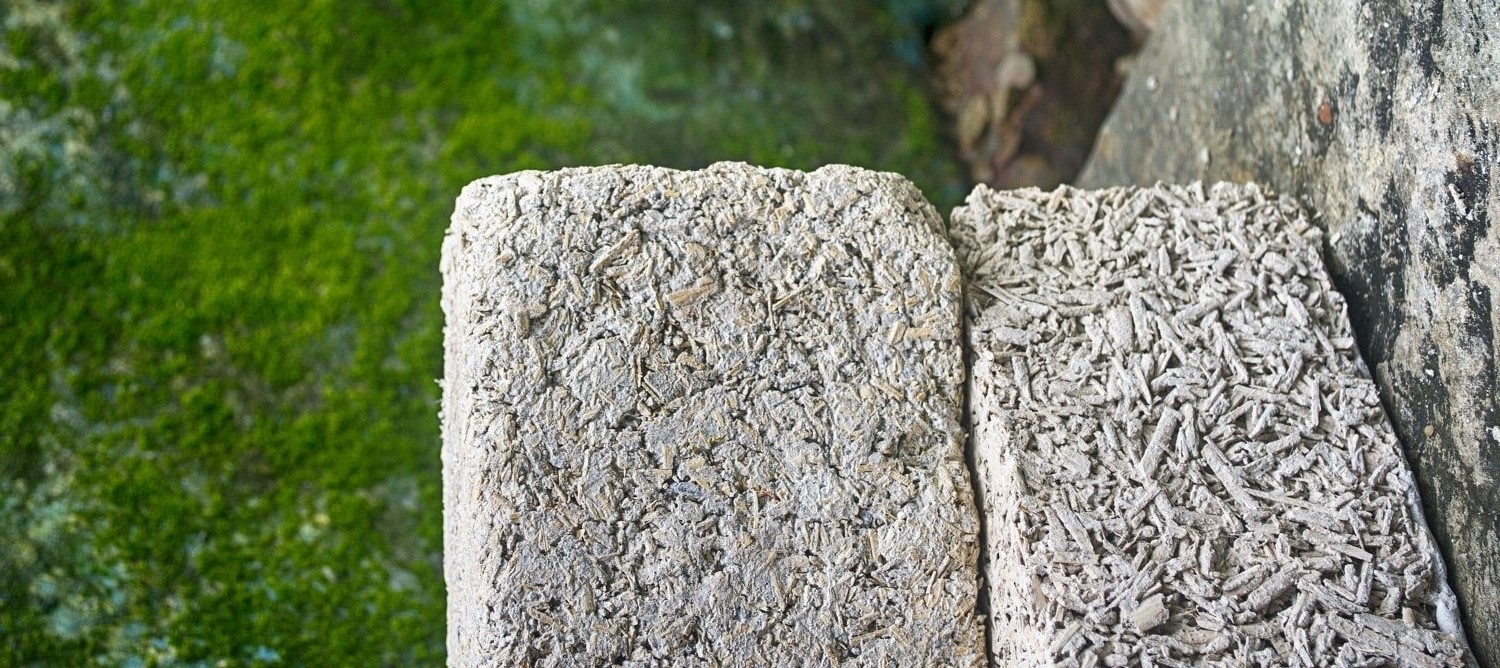

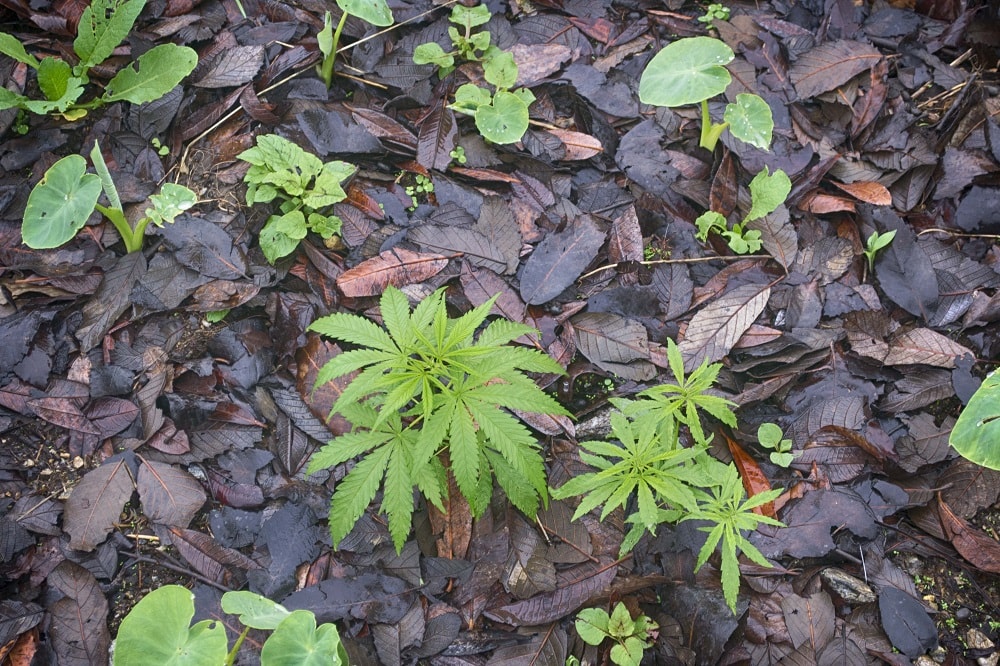


The Gohemp blocks is a range of organic construction blocks suitable for building all kinds of buildings with a concrete/metal/timber load bearing structure and a lime based mortar.

The Gohemp boards are a range of boards that will be suitable for any use in interiors, temporary construction, furniture etc.

The DIY kit allows any individual to use and build with the material by himself.This kit is best for students,researchers and other curious minds to have a hands on experience with hempcrete.

The gohemp shives is a quality product made to meet the architect's requirement, and to constitute a perfect mix of hempcrete along with gohemp binder.

The gohemp limebinder is a perfect lime based binder which when used with gohemp shives gives the best hempcrete mix.
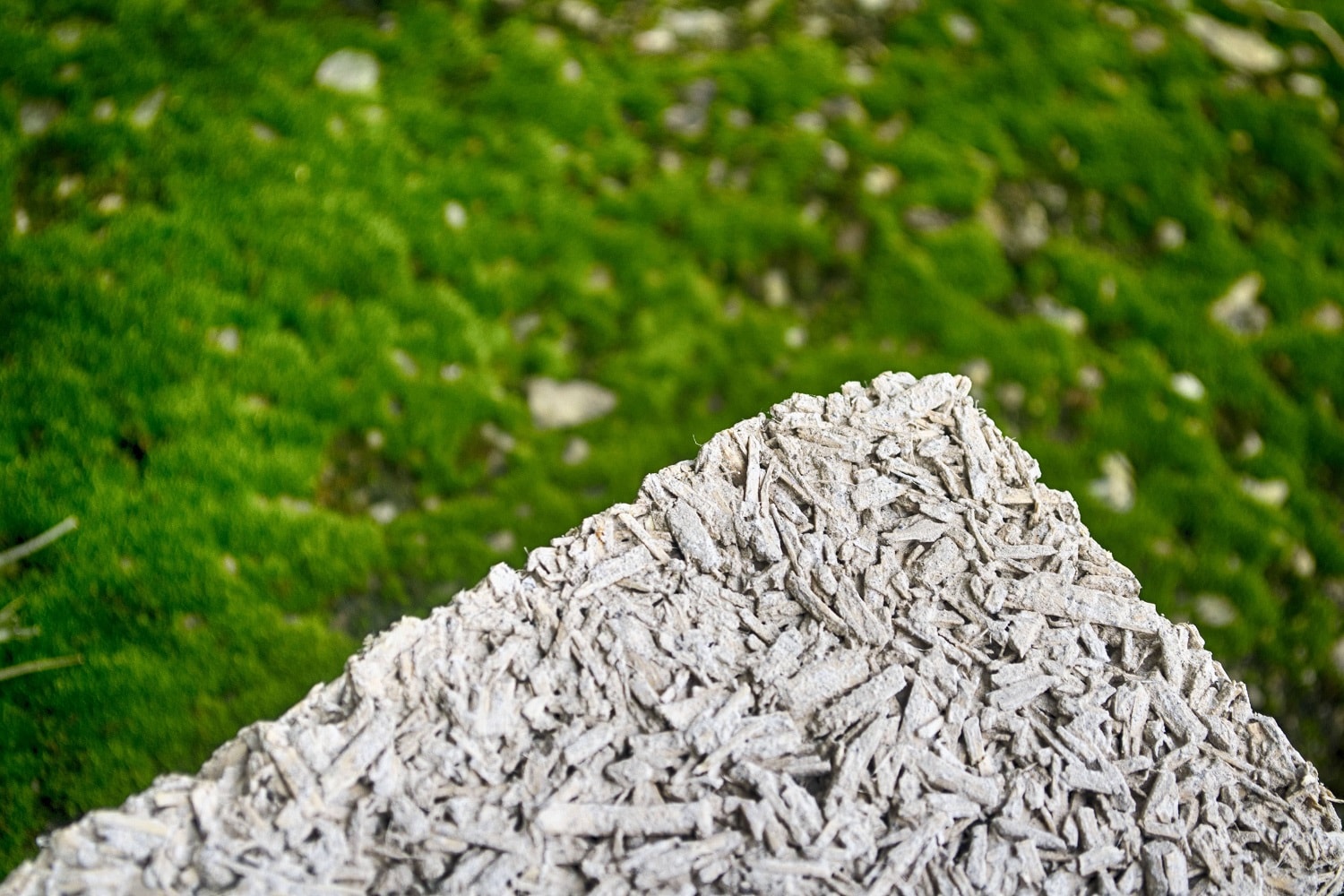
The Gohemp blocks is a range of organic construction blocks suitable to build all kinds of buildings with a concrete/ meta/timber load bearing structure and a lime based mortar.